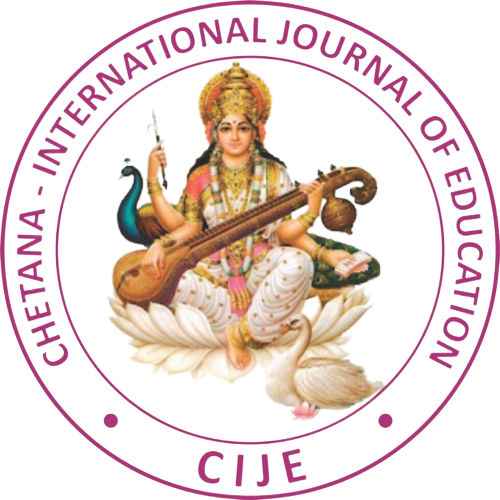We at CHETANA International Journal of Education, aspire to select research paper/articles, through highest quality peer review. To achieve this, the entire peer review and publication process must be thorough, objective, and fair. Almost every aspect of this process involves important ethical principles and decisions, which are seldom explicitly stated and even less often shared with the readership. Journal’s prestige and reputation depend on the trust of readers, scholars, authors, reviewers, editors, research subjects, funding agencies, and administrators. This trust is enhanced by describing as explicitly as possible the journal’s policies to ensure the ethical treatment of all participants in the publication process. We have following Publications Guidelines.
We at CHETANA International Journal of Education aspire to select research paper, through highest quality peer review. Publications should strictly seek original work that has not been previously published or currently not under review at another journal/conference.
Authors
Good research should be well justified, well planned, and appropriately designed, so that it can properly address the research question. Paper should publish based on the copyright that constitutes authorship. All authors are responsible for the quality, accuracy, and ethics of the work. Republication of a paper in another language, or simultaneously in multiple journals with different audiences may be acceptable, provided that there is full and prominent disclosure of its original source at the time of submission of the article. Before submitting manuscript to Research Review Journals, authors, scholars and contributors are advised to go through author guidelines, Plagiarism Policy and Publication ethics
Review Process
- Peer review is fundamental to the scientific publication process and the dissemination of knowledge and information.
- Peer reviewers should be experts in the specific topic addressed in the articles they review, and should be selected for their objectivity and scientific knowledge.
- All reviewers should be informed of the publication’s expectations.
- Reviews will be expected to be professional, honest, courteous, prompt, and constructive.
- The editors may routinely assess all reviews for quality; they may also edit reviews before sending them to authors.
- The submitted manuscript is a privileged communication; reviewers must treat it as confidential. It should not be retained or copied.
- Also, reviewers must not share the manuscript with any colleagues without the explicit permission of the editor.
Editor
Editorial
Decisions should be precise. If a published paper is subsequently found to have
errors or major flaws, the Editor should take responsibility for promptly
correcting the written record in the publication. Quality and other performance
characteristics of editors should be periodically assessed.
Plagiarism
Plagiarism is the use of other’s published and unpublished ideas or words (or other intellectual property) without attribution or permission, and presenting them as new and original rather than derived from an existing source. At Research Review Journals, we strongly discourage and against this ruthless act. If found guilty to any extent, CHETANA International Journal of Education will fight for Plagiarism. Self-plagiarism refers to the practice of an author using portions of their previous writings on the same topic in another of their publications, without specifically citing it formally in quotes. Therefore contributors must adhere to the Plagiarism Policy of Research Review Journals.
Open Access
The Budapest Open Access Initiative defined “Open Access” as making it freely available on the public Internet, permitting any users to read, download, copy, distribute, print, search, or link to the full texts of these articles, crawl them for indexing, pass them as data to software, or use them for any other lawful purpose, without financial, legal, or technical barriers other than those inseparable from gaining access to the Internet itself.
All research articles published in Research Review Journals are fully open access: immediately freely available to read, download and share. Articles are published under the terms of a Creative Commons license which permits use, distribution and reproduction in any medium, provided the original work is properly cited. (Open Access Policy)
Publication Ethics
CHETANA International Journal of Education is committed to upholding the integrity of the work we accept and publish. The value of academic publishing relies on everyone involved behaving ethically. The following points are only intended to give a broad overview and are not exhaustive. We encourage our authors, academicians, reviewers and editors to refer to the Committee on Publication Ethics (COPE) website. If you are unsure of a journal-related ethical issue, you might well find the answer in COPE’s wealth of materials, but if you have any query regarding ethical practices please contact the Editor of the Journal at editor.chetana@gmail.com.


